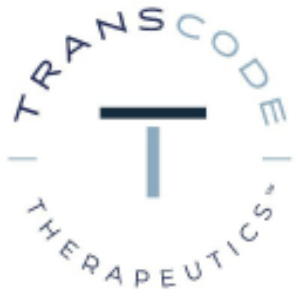TransCode Therapeutics Announces Safety Review Committee Approval to Open Fourth Cohort in Phase I/II Clinical Trial
Rhea-AI Summary
TransCode Therapeutics (NASDAQ: RNAZ) has received approval from the Safety Review Committee (SRC) to proceed with Cohort 4 in its Phase I/II clinical trial for TTX-MC138, a first-in-class RNA therapeutic for metastatic cancers. The approval follows favorable safety data from Cohort 3, with no significant safety issues or dose-limiting toxicities reported across all three previous cohorts.
Key highlights:
- 6 out of 9 treated patients remain on study, with one patient receiving 7 doses over approximately 7 months
- Cohort 4 will receive a dose approximately 50% higher than Cohort 3
- SRC approved additional patient enrollment in Cohort 3
- Pharmacokinetic and pharmacodynamic data from Cohorts 1 and 2 align with preclinical and Phase 0 trial results
- Preliminary analysis suggests dose levels of 0.8-1.6 mg/kg could represent an efficacious range
Positive
- No safety issues or dose-limiting toxicities reported in first three cohorts
- Strong patient retention with 6 out of 9 patients continuing treatment
- Pharmacokinetic/pharmacodynamic data consistent with preclinical and Phase 0 results
- Evidence of drug activity in patient blood confirmed
- Potential efficacious dose range identified (0.8-1.6 mg/kg)
Negative
- None.
News Market Reaction
On the day this news was published, RNAZ declined 27.25%, reflecting a significant negative market reaction.
Data tracked by StockTitan Argus on the day of publication.
- Clinical trial Safety Review Committee (SRC) approved opening of Cohort 4 based on favorable safety data from the three patients comprising Cohort 3
- No significant safety or dose limiting toxicities reported in Cohorts 1, 2, or 3
- Patients currently being evaluated for Cohort 4 eligibility
- PK and PD data from patients in Cohort 1 and Cohort 2 consistent with preclinical results and results from Phase 0 clinical trial
Under the clinical protocol, patients may remain on study absent safety events or disease progression. Out of 9 patients treated with TTX-MC138 in the first three cohorts, 6 remain on study for continued treatment since there have been no dose limiting toxicities or disease progression with these patients. The patient that has remained on study the longest has, to date, received 7 doses each approximately 28 days apart over the approximately 7 months that this patient has been on study. In addition to approving opening the fourth cohort, the SRC approved enrollment of additional patients in Cohort 3 to build upon the safety profile of TTX-MC138. Further, Cohort 1 and 2 data analysis for both pharmacokinetic (PK) and pharmacodynamic (PD) activity is ongoing and suggests that TTX-MC138 demonstrates a PK/PD profile consistent with preclinical results and results from TransCode's Phase 0 clinical trial. Preliminary results from Cohort 2 confirmed observations from the Phase 0 trial and from Cohort 1 that the drug candidate shows evidence of activity in patient blood. Preliminary PK analysis suggests that dose levels 0.8-1.6 mg/kg, the levels administered to Cohorts 1 and 2, could represent an efficacious range.
"SRC approval to open the fourth cohort and expand enrollment in Cohort 3 is an important advancement for the clinical trial. It will provide an opportunity to obtain additional safety and PK/PD data, inform the dose expansion stage of the clinical trial and may allow us to obtain initial evidence of clinical activity" commented Sue Duggan, TransCode's Senior Vice President of Operations. Duggan added, "Enrollment into the study continues based on the cumulative safety data review. Eligible subjects may now be screened and scheduled in Cohort 4 for treatment with the next dose level of TTX-MC138 while preliminary data analysis continues."
About TTX-MC138
TTX-MC138 is a first-in-class therapeutic candidate that targets microRNA-10b, a micro-RNA widely believed to be a driver of metastatic disease. TransCode's 2023 Phase 0 clinical trial produced evidence of delivery of a radiolabeled version of TTX-MC138 to metastatic lesions and pharmacodynamic activity, even at a microdose of the drug candidate, suggesting a broad therapeutic window for TTX-MC138.
About the Trial
TransCode's Phase 1 clinical trial is a multicenter, open-label, dose-escalation and dose-expansion study, designed to generate critical data to support evaluation of the safety and tolerability of TTX-MC138 in patients with a variety of metastatic solid cancers. While not an endpoint, the trial may provide early evidence of clinical activity of TTX-MC138. The trial comprises an initial dose-escalation stage followed by a dose-expansion stage. The primary objective of the dose-escalation stage is to evaluate the safety and tolerability of escalating dose levels of TTX-MC138. In the dose-expansion stage, the safety, tolerability and anti-tumor activity of TTX-MC138 will be further evaluated in certain tumor types selected based on preliminary results from the dose-escalation stage.
Further information is available at www.clinicaltrials.gov NCT Identifier: (NCT06260774).
About TransCode Therapeutics
TransCode is a clinical-stage oncology company focused on treating metastatic disease. The company is committed to defeating cancer through the intelligent design and effective delivery of RNA therapeutics based on its proprietary TTX nanoparticle platform. The company's lead therapeutic candidate, TTX-MC138, is focused on treating metastatic tumors which overexpress microRNA-10b, a unique, well-documented biomarker of metastasis. In addition, TransCode has a portfolio of other first-in-class RNA therapeutic candidates designed to overcome the challenges of RNA delivery and thus unlock therapeutic access to a variety of novel genetic targets that could be relevant to treating a variety of cancers.
Forward-Looking Statements
This release contains "forward-looking statements" within the meaning of the Private Securities Litigation Reform Act of 1995, including, without limitation, statements concerning the timing, conduct and results of the Phase 1 clinical trial, statements about microRNAs and their involvement in cancer, and statements concerning the therapeutic potential of TransCode's TTX-MC138. Any forward-looking statements in this press release are based on management's current expectations of future events and are subject to a number of risks and uncertainties that could cause actual results to differ materially and adversely from those set forth in or implied by such forward-looking statements. These risks and uncertainties include, but are not limited to: the risks associated with drug discovery and development; the risk that the results of clinical trials will not be consistent with TransCode's pre-clinical studies or expectations or with results from previous clinical trials; risks associated with the conduct of clinical trials; risks associated with TransCode's financial condition and its need to obtain additional funding to support its business activities, including TransCode's ability to continue as a going concern; risks associated with the timing and outcome of TransCode's planned regulatory submissions; risks associated with obtaining, maintaining and protecting intellectual property; risks associated with TransCode's ability to enforce its patents against infringers and defend its patent portfolio against challenges from third parties; risks of competition from other companies developing products for similar uses; risks associated with TransCode's dependence on third parties; and risks associated with geopolitical events and pandemics, including the COVID-19 coronavirus and military actions. For a discussion of these and other risks and uncertainties, and other important factors, any of which could cause TransCode's actual results to differ from those contained in or implied by the forward-looking statements, see the section entitled "Risk Factors" in TransCode's Annual Report on Form 10-K for the year ended December 31, 2023, as well as discussions of potential risks, uncertainties and other important factors in any subsequent TransCode filings with the Securities and Exchange Commission. All information in this press release is as of the date of this release; TransCode undertakes no duty to update this information unless required by law.
![]() View original content to download multimedia:https://www.prnewswire.com/news-releases/transcode-therapeutics-announces-safety-review-committee-approval-to-open-fourth-cohort-in-phase-iii-clinical-trial-302400575.html
View original content to download multimedia:https://www.prnewswire.com/news-releases/transcode-therapeutics-announces-safety-review-committee-approval-to-open-fourth-cohort-in-phase-iii-clinical-trial-302400575.html
SOURCE TransCode Therapeutics, Inc.








